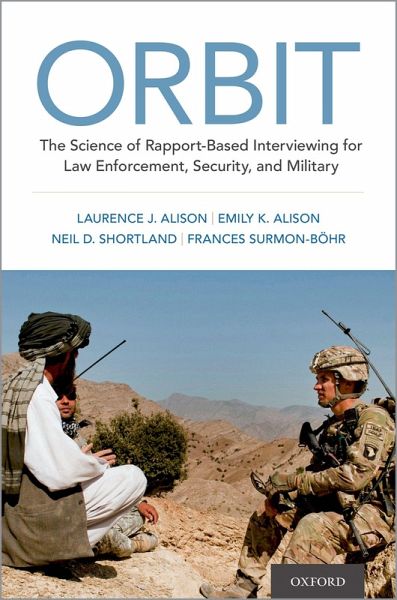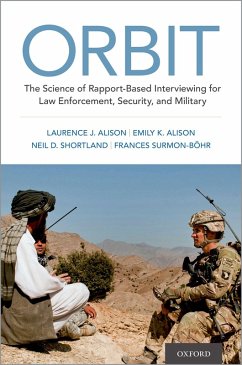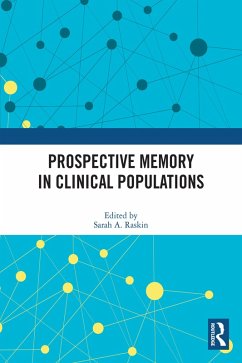
ORBIT (eBook, ePUB)
The Science of Rapport-Based Interviewing for Law Enforcement, Security, and Military

PAYBACK Punkte
11 °P sammeln!
ORBIT (Observing Rapport Based Interpersonal Techniques) is an approach to interviewing high-value detainees, encompassing not only analysis and research into the methodology, but also a framework for training. ORBIT: The Science of Rapport-Based Interviewing for Law Enforcement, Security, and Military offers comprehensive treatment of ORBIT's unique perspective on human rapport and the role it plays in the interrogation of difficult subjects, including suspects, detainees, and high value targets. Alison and colleagues provide an overview of ORBIT, which was developed from analysis of nearly 2...
ORBIT (Observing Rapport Based Interpersonal Techniques) is an approach to interviewing high-value detainees, encompassing not only analysis and research into the methodology, but also a framework for training. ORBIT: The Science of Rapport-Based Interviewing for Law Enforcement, Security, and Military offers comprehensive treatment of ORBIT's unique perspective on human rapport and the role it plays in the interrogation of difficult subjects, including suspects, detainees, and high value targets. Alison and colleagues provide an overview of ORBIT, which was developed from analysis of nearly 2000 hours of recorded interrogations. They go on to define rapport, explaining how and why it works by reference to this corpus of data--by far the largest of its kind in the world. ORBIT reveals what this data shows: that rapport-based methods work, and that coercion, persuasion, and threats do not. Outlining the development of their own unique stance on rapport and its influences, the authors demonstrate, through real-life examples and careful analysis, why harsh methods must be rejected and why compassion and understanding work.
Dieser Download kann aus rechtlichen Gründen nur mit Rechnungsadresse in A, B, BG, CY, CZ, D, DK, EW, E, FIN, F, GR, HR, H, IRL, I, LT, L, LR, M, NL, PL, P, R, S, SLO, SK ausgeliefert werden.













